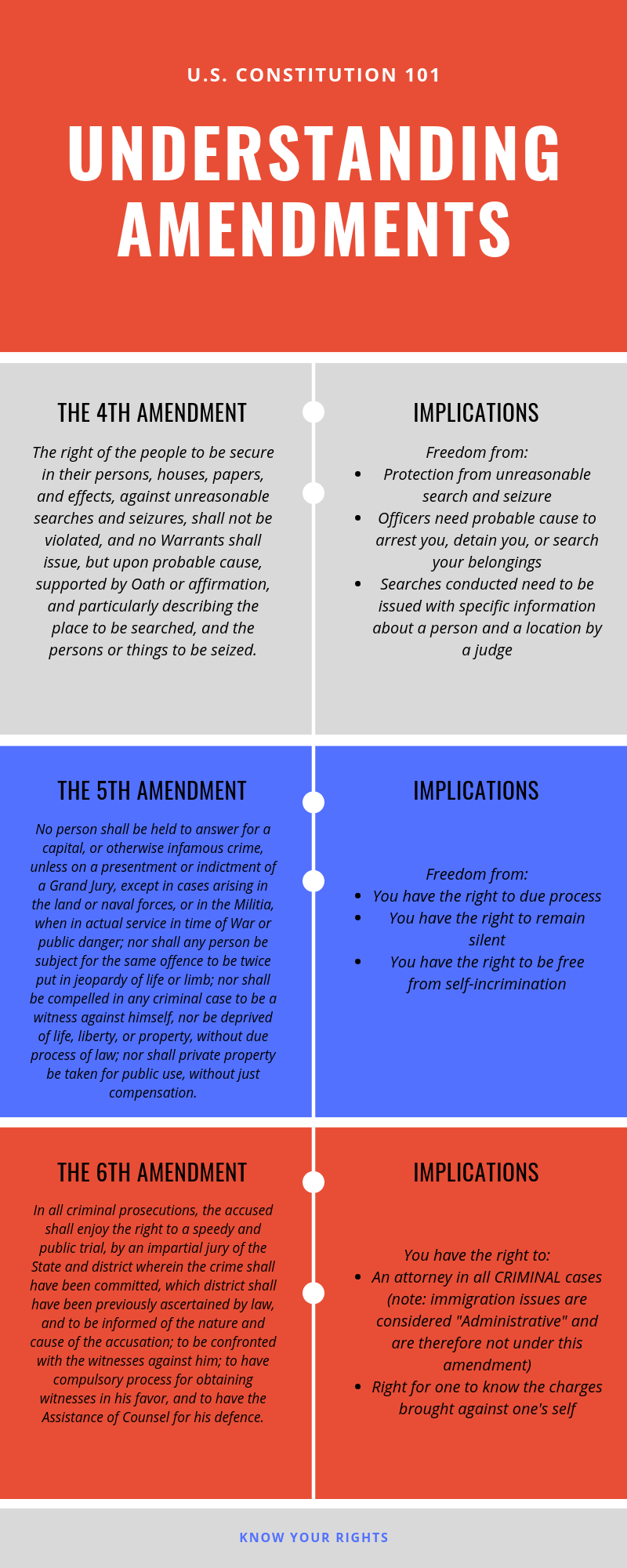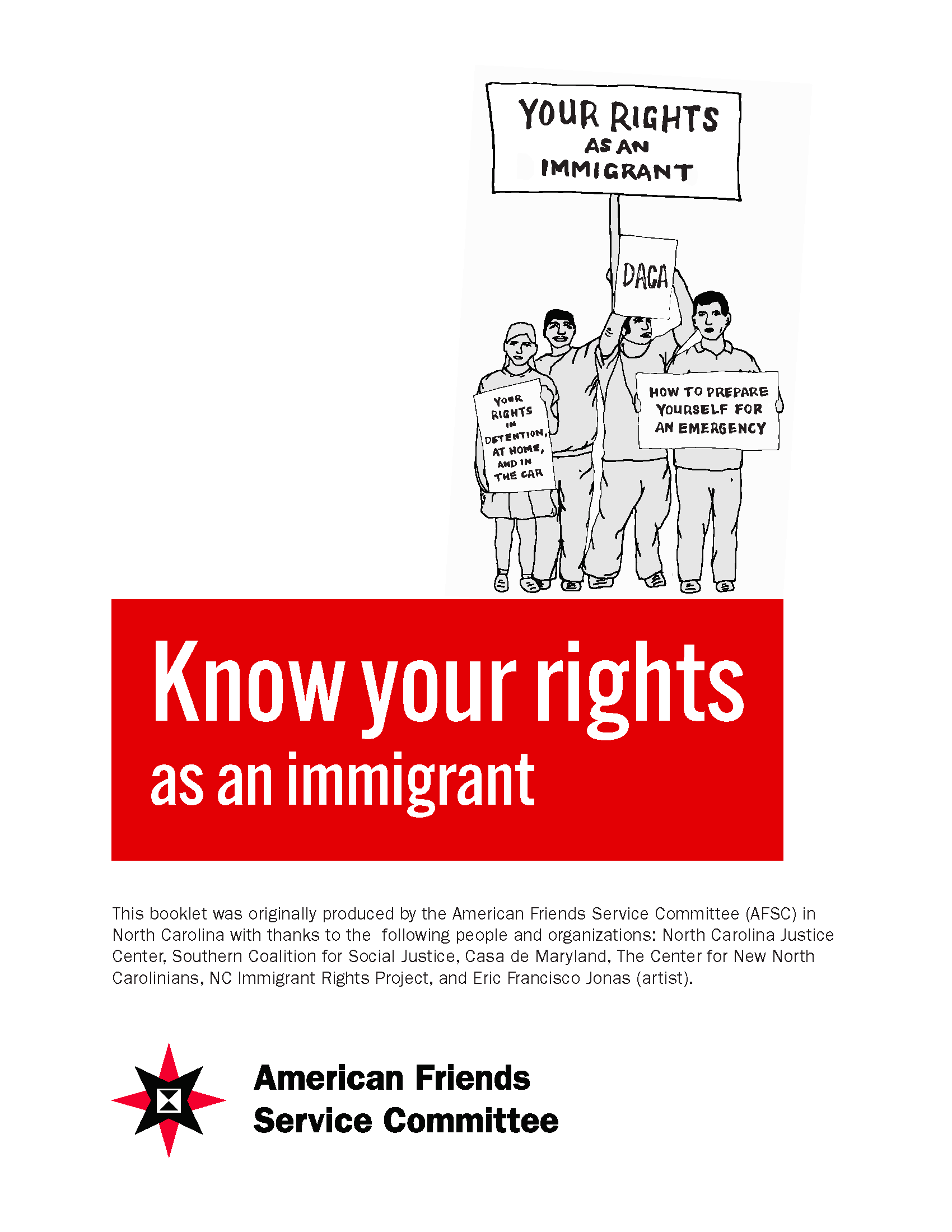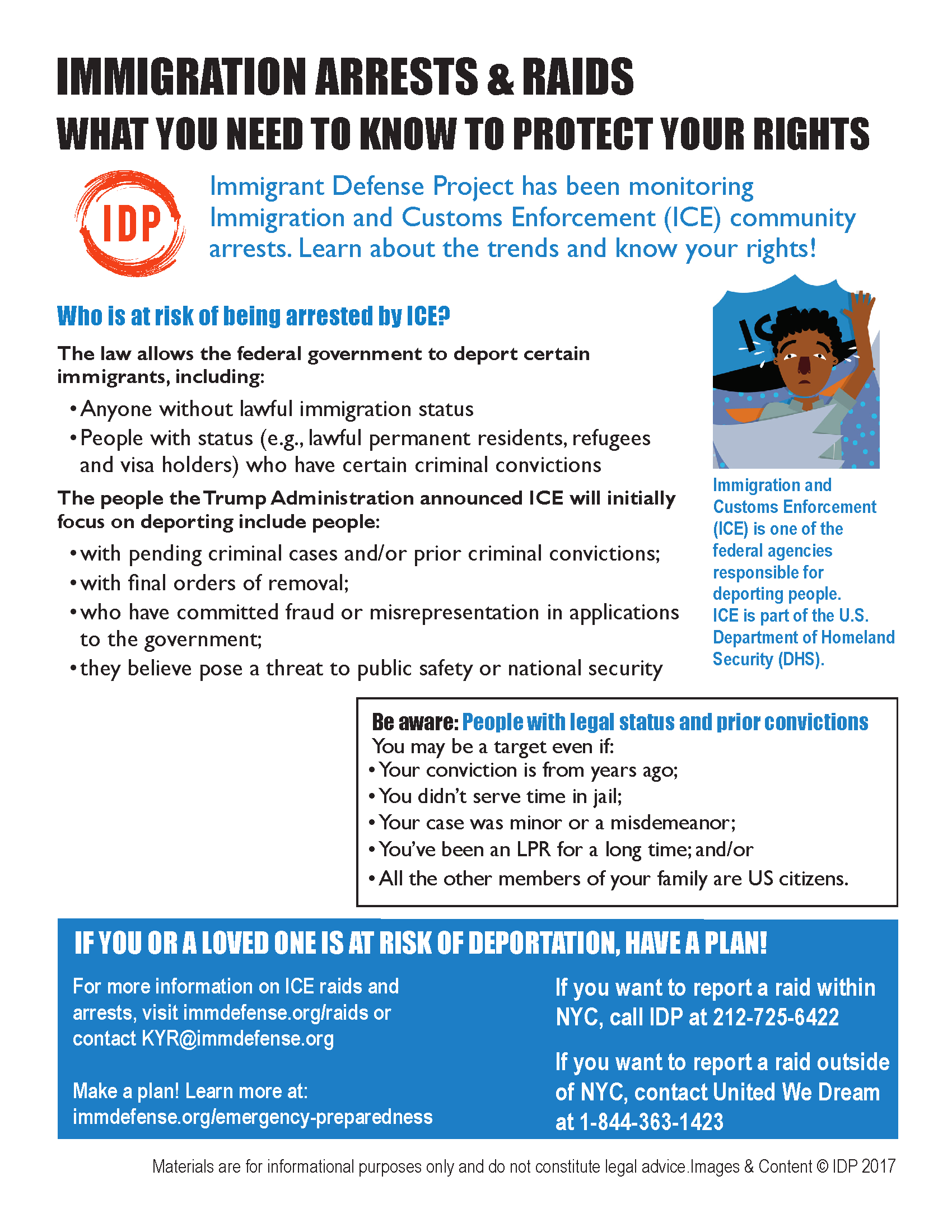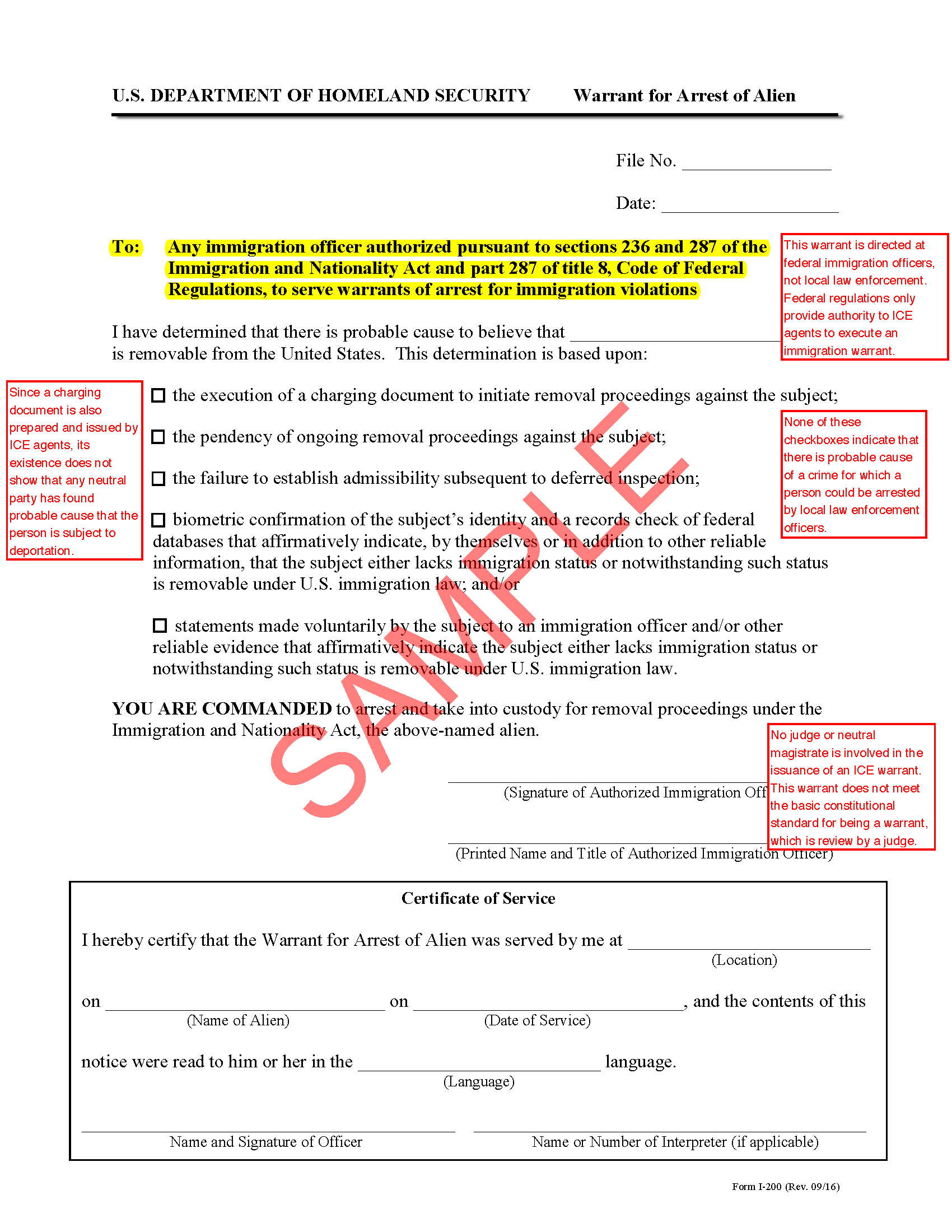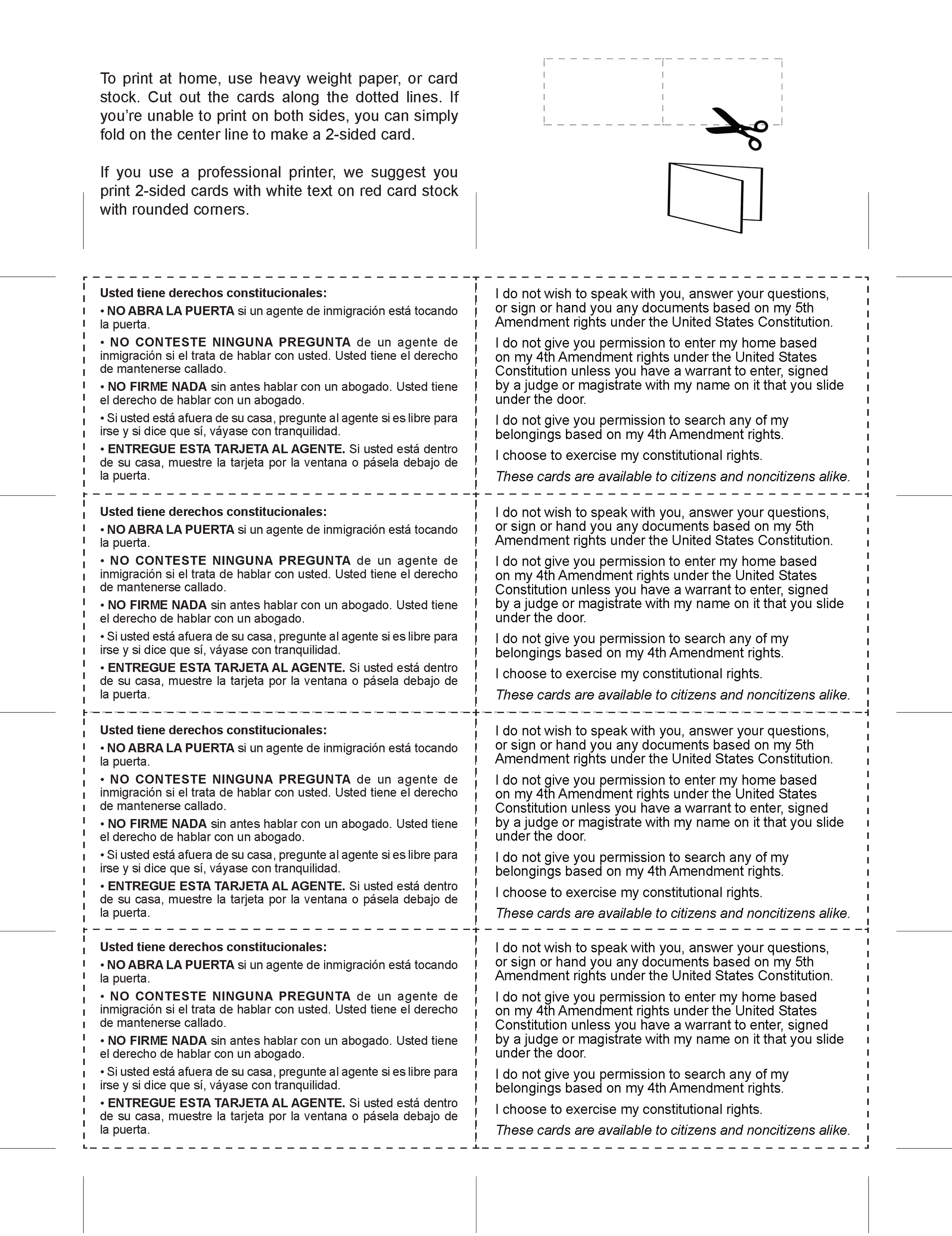Immigrants, refugees, and asylees possess many of the same rights as American Citizens, but there are legal barriers that you might encounter that are unique. Knowing your rights will help protect you and your family
Disclaimer: This information presented is not intended to substitute for legal advice. This information presented is merely for educational purposes. One should understand this information as a list of best practices, as expressed by community advocates working in the field. In the event that you are facing serious immigration issues, finding appropriate legal representation is best.
1. The United States Constitution
The United States Constitution is the most important document in the United States, authorizing the government to have authority within constraints and acting as the supreme law of the land. Enshrined within this document are the rights that we all enjoy, and it is the document that acts as the ultimate authority within all US jurisdictions upon all people within those jurisdictions—immigrant, refugee, asylum seeker, citizen, or even people without formal documentation.
Important Amendments to Know
Three of the five most important amendments to the Constitution to remember are the 4th, 5th, and 6th. Here is why:
The 4th Amendment protects you and your family from unreasonable search and seizure of your person or your property. This means that if you are pulled over by law enforcement, have immigration arrive at your house, or get stopped on the street, law enforcement are NOT allowed to search you without probable cause and a warrant signed by a judge. This last detail is crucially important, as ICE has been known to use “administrative warrants” to confuse people in order to gain access to evidence. An administrative warrant is NOT a judicial warrant.
The 5th Amendment ensures your right to due process, the right to remain silent, and the right to be free from self-incrimination. Where this is most relevant for immigration is during periods when you are stopped by law enforcement. When you are stopped by ICE, you DO NOT have to say anything. Simply state your right, “I have the right to remain silent;” you do not have to identify yourself. The exception is if you are being placed under arrest by local law enforcement: in Colorado, you have to identify yourself to the police. After you have identified yourself, your right to remain silent is back in effect.
The 6th Amendment guarantees one’s right to an attorney in all criminal cases, as well as allows one to know the charges brought against one’s self. This does not apply in immigration courts, as those courts are administrative courts. Immigrants are often required to self-represent in these scenarios, which is not to their benefit. One who can afford legal representation would benefit from having that counsel.
The 10th Amendment
The powers not delegated to the United States by the Constitution, nor prohibited by it to the States, are reserved to the States respectively, or to the people.
The significance of the 10th Amendment is often lost in the conversation around immigrant rights, but it is absolutely central in the era of collaboration between local law enforcement and immigration authorities. The significance of the 10th Amendment for this collaboration is that it specifically bars the delegation of federal immigration enforcement to local law enforcement; county sheriffs, for instance, would not have the authority to detain people further than their sentence for a criminal offense.
Read more about this issue in Colorado with the passage of House Bill 1124 on May 29th, 2019.
The 14th Amendment (Section 1)
No State shall make or enforce any law which shall abridge the privileges or immunities of citizens of the United States; nor shall any State deprive any person of life, liberty, or property, without due process of law; nor deny to any person within its jurisdiction the equal protection of the laws.
The significance of the 14th Amendment is also great when it comes to immigrant communities. Not only does the 14th Amendment promise that everyone born within a US territory is automatically granted American citizenship, but it also promises that everyone under the law is to be treated equally under that law. Unlike many other countries around the world, the United States tries to emphasize equality in judicial settings. While the country falls far short of this ideal often, including for immigrant communities, the ideal is nonetheless enshrined in the Constitution.
Section 2: Types of Law Enforcement
It is important to recognize the differences between local law enforcement, like those pictured above, and federal immigration enforcement. The former have different jurisdiction than the latter, and they are not permitted to be enforcing immigration policy in the state of Colorado. Local law enforcement will include, for our area: Greeley/Evans Police, Colorado State Patrol, and Weld County Sheriffs. This last group, the Sheriffs, control the jails; it is important to remember that the position of sheriff is an elected position — so citizens of the United States can elect someone who reflects the values of their community in this position.
Federal immigration authorities, including Immigration and Customs Enforcement (ICE) and Customs and Border Protection (CBP) have a different mandate than local law enforcement; these groups, as a part of the Department of Homeland Security, enforce federal immigration policy under the authority of the executive branch of government.
Watch the videos below to understand what phrases to use during various scenarios that may play out. It is important to be vocal in asserting your rights to law enforcement, such that your case may be ruled more favorably if mistakes were made. You are entitled to these rights, and asserting them is not you “causing problems” or disrespecting authority figures.
Some of the magic phrases you will need to memorize, derived from our Constitutional rights, include:
“I have the right to remain silent.”
“Am I free to leave?”
“I would like to speak to my lawyer.”
Section 4. Making a Plan and Being Ready
It is crucial to be prepared before an encounter with ICE happens rather than after. Waiting can creating significant, frustrating delays for the entire process. Accordingly, here are some tips you can use to be ready. Download the document provided by Meyer Law Office (right) for a fuller view.
Keep personal documents organized and maintain copies of all of your documents. Do NOT give your passport over to ICE, and be sure to always have your originals in your possession instead of giving them to any bureaucracy that may not be able to return them promptly.
Carry a list of important phone numbers and contacts in your wallet or otherwise on your person. Keeping these contacts in your cell phone will not do you any good if your phone is confiscated.
Make sure that certain legal authorities have been granted to individuals whom you trust, especially if you have children at home.
Section 5. Key Phrases & Rights to Remember
Attached are some important rights & phrases to remember if you have a direct interaction with police or ICE. Click on your language below to view the flyers.
Section 6. Downloadable Resources
Click to download each of the resources below to aid in your education about your rights or to help in making a plan to be ready if you are to encounter immigration.




